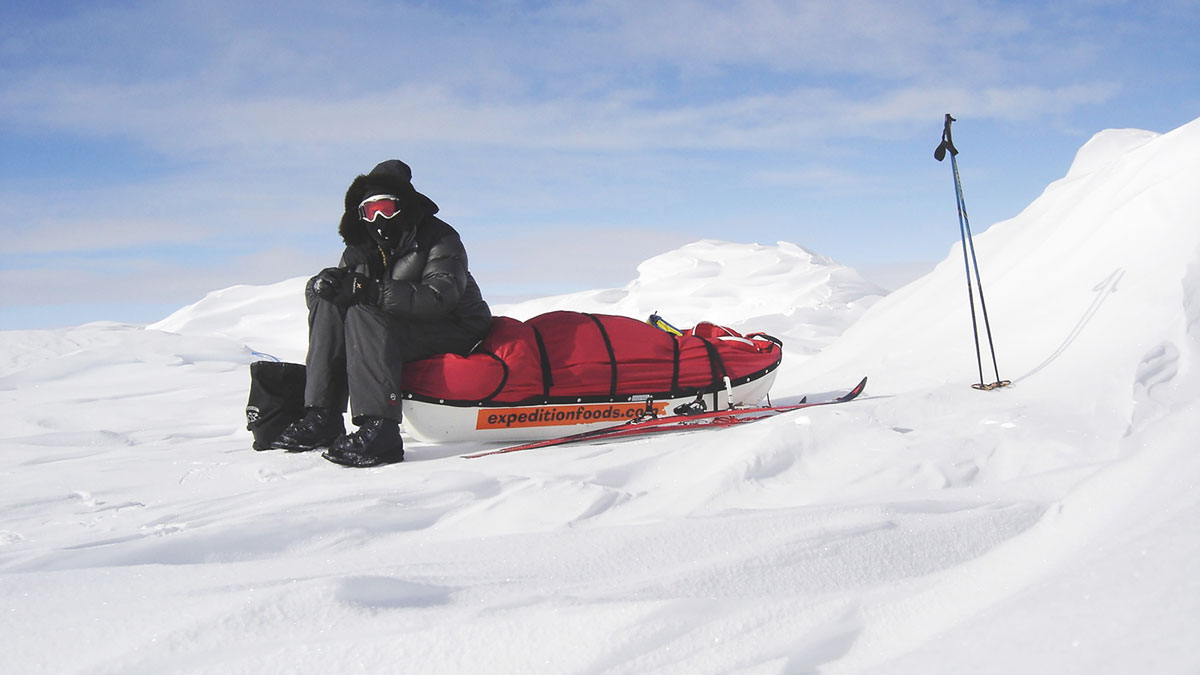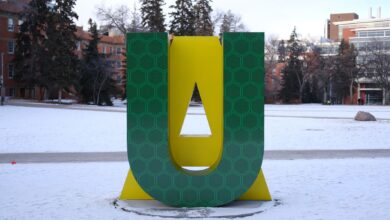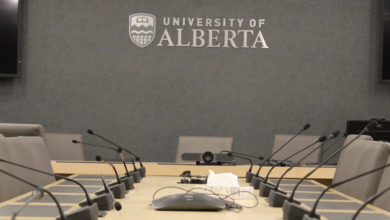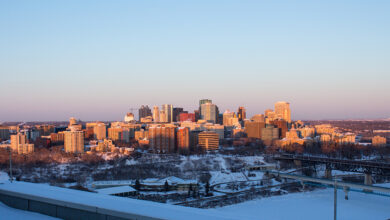 Supplied — Hannah McKeand
Supplied — Hannah McKeandWith a degree in Classics and a career in theatre, Hannah McKeand had never envisioned a career in Antarctica. But after working for 11 years, she is coming to the U of A next week to speak about her experiences.
McKeand set her first world record in 2006 for the fastest unassisted journey from the Antarctic coast to the South Pole. The 1,100 kilometre trek took her 39 days, 9 hours and 33 minutes, a record which she held until 2008. She has since achieved a second world record, having skied to the South Pole more than any other person in history.
Though McKeand has journeyed through the Arctic, Northeast Africa and the Middle East, her specialty is the Antarctic, where she works as a guide and logistics consultant.
Skiing to the South Pole was McKeand’s initial goal with Antarctica. In 2004 she visited the continent for the first time as a client for the company that later hired her as a guide. In a guided group, McKean made her first journey from coast to the pole. Her Antarctic “baptism of fire” took 56 days.
“It was really natural, I just got it,” she said. “I had no background in anything like that at all.”
Now, McKeand works as a guide and camp manager, working with people to achieve their own expedition goals in the Antarctic. She feels the most at home on the continent, calling herself an “Antarctic Citizen.” McKeand feels blessed in having a career that gives her the feeling of being “really, really good at something,” she said.
“When I’m on Antarctica and I’m looking after people there, that’s the thing that I’m good at. I am one of the best in the world at that,” Mckeand said. “In the months that I’m there, I get to be the best version of myself.”
One of McKeand’s camps is only two kilometres away from an emperor penguin colony — some curious members even visit the camp. People aren’t allowed to approach the penguins, but the penguins haven’t read the rulebook, McKeand said.
“We’ll dig a hole in the ground to make a freezer for our frozen food, and the penguins are beside themselves,” she said. “They’re like, ‘Oh my goodness, we must investigate the hole and slide into the hole and have trouble getting out of the hole.’”
This year, the crew had to dig a penguin steps so it could exit the freezer hole. Managing guest camps in Antarctica also comes with challenges. Camps are vulnerable to a wide range of environmental phenomena. This year’s El Niño put a camp on sea ice at risk of breaking off from the mainland, making for five weeks of being sleep-deprived, waking up “30 times a night and wondering if we’re moving,” Mckeand said.
“I think it’s really healthy for us to get in tough with what it’s like to be a human animal,” she said. “It’s really only those wild, barren places that we get to tough on that.”
McKeand will journey from her home in Salt Lake City to Edmonton to speak on Wednesday, Jan. 13 at the Telus Building, where she’ll tell her “rags-to-riches” story of becoming a worldwide expeditioner and go into depth on her journeys to the South Pole. Entry is $10 for students and $15 for public. Tickets are being sold by the Outdoors Club during office hours and over email.




